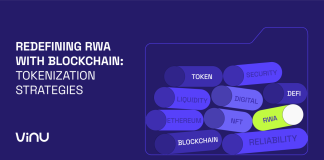The Money 20/20 Europe Conference has become, for me, one of the essential events to follow both industrial and academic developments…
This year, the conference held from June 3–5, 2025, brought together over 8,000 participants from more than 90 countries under the theme “Create the Future”, focusing on four key areas: Digital DNA, Embedded Intelligence, Beyond FinTech, and Governance 2.0. We shared many insights about the event from the very first day through FinTech Istanbul Platform with Celal Cundoglu .

From an academic perspective, I would like to reinforce what has been shared by offering a critical evaluation. My observation is that Money 20/20 Europe is no longer just an industrial gathering; it is now a site of knowledge production and a political economy laboratory. As such, it has also become a significant research setting for academics aiming to understand the sociotechnical regime of financial technologies. Within this context, the conference can be analyzed through the lenses of economic sociology, information society theory, critical data studies, and digital financial governance.
Based on my academic assessment, the following thematic categories stood out and, I believe, will guide future research in this field:
1. Epistemology of Financial Technologies: The Knowledge-Power Nexus
The content of the event did not merely showcase technological innovation but also revealed how the global financial system is evolving and how knowledge functions as a tool of hegemony. Companies such as Stripe, Klarna, and Bunq reinforced the commodification of knowledge through data-driven personalization, AI applications, and the use of stablecoins in cross-border payments.
2. The Importance of Ecosystems
Building strong and sustainable ecosystems was a major theme throughout the event and aligned closely with the “Create the Future” theme. National pavilions brought together country-specific FinTech firms, inviting investment into their local markets. Countries such as Germany, Italy, Cyprus, Estonia, Malta, Lithuania, Latvia, Ireland, Scotland, the Nordics, China, and Korea promoted their investment environments through these pavilions.

Turkish Companies were both located under the “Türkiye Pavilion”, coordinated by TÖDEB, and also on their own stands which were big enough to compete with their international competitiors. Turkish companies attended this year:
Sipay, ArkSigner, Finartz, Moka United, Misyon Bank, Param, Dgpays, Paycell, Paribu, VeriPark, Aktif Bank, Lidio, PayTR, NKolay Ödeme ve Elektronik Para Kuruluşu A.Ş, Elekse Elektronik Para & Ödeme Kuruluşu A.Ş., Papara, Papel, Parolapara, PayPole Ödeme Hizmetleri Ve Elektronik Para A.Ş., Payporter Ödeme Hizmetleri Ve Elektronik Para A.Ş., IQ Money, UPT Ödeme Hizmetleri ve Elektronik Para A.Ş., HAVELSAN, OBSS, TÖDEB.

These structures are important for observing the flow of capital and knowledge from the periphery to the center and demonstrate how peripheral economies gain visibility in the international FinTech arena.
3. Bank–FinTech Collaborations and “Coopetition”
The necessity of combining the distinct competencies of banks and FinTech firms to create scalable joint solutions was emphasized multiple times. The concept of “coopetition”—which I have long advocated for and researched—was central. Firms like Fiserv and Nium pointed out that successful partnerships rely not only on technology but also on cultural alignment and agility.
4. Technology–Regulation Dynamics
One of the key themes, “Governance 2.0”, addressed the dynamic interplay between innovation and regulation. Domains such as RegTech and Open Banking APIs serve as channels where new financial norms are being shaped—resonating with Foucault’s concepts of Biopolitics and Surveillance.
5. AI-Driven Financial Decision Automation
Companies like Klarna and Bunq are not only using AI for operational efficiency but also integrating it into strategic decision-making processes. This development raises academic inquiries around AI Ethics, Algorithmic Governance, and the Social Implications of Automated Financial Systems.
6. Social Impact and Financial Inclusion in FinTech
Themes such as “customer experience”, “inclusion”, and “democratization of finance” appeared prominently. However, from an academic standpoint, it is worth questioning whether these narratives represent genuine inclusion or marketing strategies. Much of the critical literature supports a skeptical view of such claims.
Unlike traditional academic conferences, Money 20/20 features knowledge exchange through presentations, panels, and demo stages—resulting in a commercialized and performative knowledge space. While this makes complex topics more accessible, it also transforms the nature of how knowledge is produced and consumed.
Summary of Key Emerging Themes from My Perspective
In addition to the discussions above, I found the following topics particularly noteworthy:
- Stablecoins and the Geopolitical Shift in Cross-Border Payments Stripe CTO Rahul Patil envisioned stablecoins as “sending money like a text.” Mareme Dieng from 500 Global highlighted cost-effective, fast, stablecoin-based payment rails. Nium CEO Prajit Nanu emphasized convergence between stablecoins, open banking, and AI in treasury management.

- Open Banking and API Utilization Sardine’s Simon Taylor stressed the underutilization of APIs and the need to reframe their function. Real-time data sharing and consent-driven models were championed.
- AI for Personalization and Efficiency Klarna reduced operational costs via AI-based customer service and marketing automation. Bunq Founder and CEO Ali Niknam showcased hyper-personalized experiences using AI.
- Strategic FinTech–Bank Partnerships The need for alignment in both capabilities and culture was emphasized. Scalability, speed, and trust were considered central elements of success.
- Customer-Centric Innovation Monzo’s profitability was attributed to its focus on customer needs and design. Core values: user experience, security, financial accessibility.
- Combating Financial Fraud Through Collaboration Collaboration across banks, FinTechs, and regulators is vital. Data sharing, user education, and real-time analytics are key defenses.
- Embedded Finance and Platform Economies Success depends on high-quality data and strong partnerships. Seamless financial integration is becoming a competitive advantage.


Finally, the 2025 edition of Money 20/20 Europe offered an exceptional opportunity to revisit and validate the core dimensions of my Strategic FinTech Transformation Model—Technology, Society, Economy, and Regulation—introduced in my 2021 book “The Transformation of Finance through FinTech and InsurTech”. The conference once again proved to be an invaluable observational and analytical space for researchers and industry leaders alike.
Thanks to Yasin Kahramaner and Özlem Kahramaner from ArkSigner for their support who made this Conference possible.




